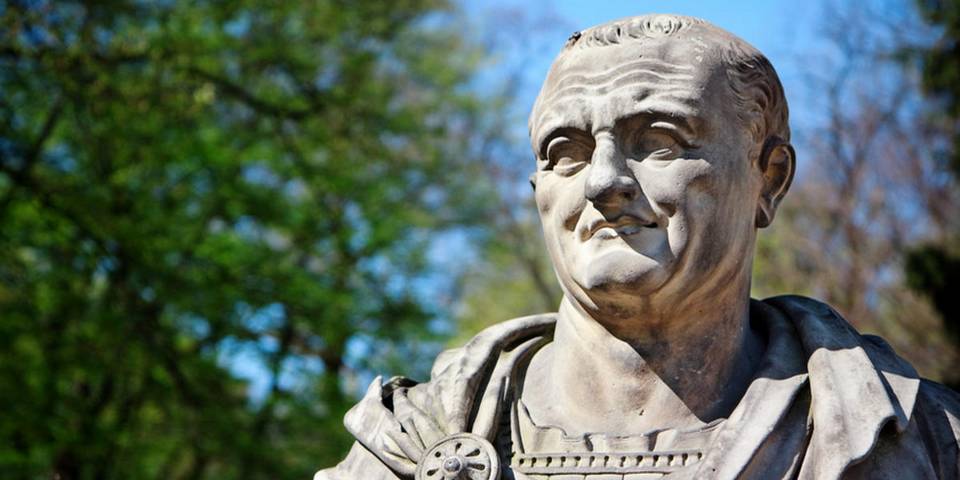

25116 views

Vespasian was the Roman emperor from 69 to 79 AD. He was the last of the four emperors who ruled the ancient Roman Empire in 69 AD. Interestingly, the previous three leaders died because of suicide or murder, while Vespasian’s death happened ten years later because of natural causes. He had two sons: Titus and Domitian. Altogether they represented the Flavian Dynasty.
Contents
ToggleTitus Flavius Vespasianus was born in a small town just north of Rome on November 17, 9 AD. The future emperor was raised by his paternal grandmother, Terulla, but was the son of Sabinus and Vespasia Polla. He had an older brother, whose name was also Sabinus, and he was a consul and governor. When Vespasian grew up, he married Flavia Domitilla, and they had three children: Titus, Domitian, and Domitilla, but his daughter died in infancy. When his wife died, Vespasian married his ex-mistress Caenis, but the wedding wasn’t official since she was enslaved.
Vespasian fought in over 30 battles and captured about 20 cities
Later, he served in Africa in the early 60 AD. Vespasian spent a long time out of Rome during the reigns of Caligula and Claudius. The future emperor had a political success but not the financial one. However, under the reign of Nero, rebellions broke out in Judea in 66 AD, and Vespasian sent his son Titus to disperse the rioters.
Later, when Nero died, and Galba became the new emperor, Vespasian and Titus were waiting for the orders in Judea. Soon, Galba died, and several emperors were changed. In this situation, the feature was the patience of Vespasian, who didn’t involve himself in troublesome affairs and didn’t show any hostility to emperors if there was some. After all the changes and short rules of several emperors, Vespasian, spet by step, came to the reign by December 26, 69 AD.
In 66 AD, Vespasian was appointed to suppress the Jewish revolt in Judea. A lot of military forces under the rule of Vespasian and Titus took place in the revolution. Thousands of Jews were killed, and the Romans destroyed many of their towns.
The Romans took Jerusalem in 70 AD.
Around 10,000 Jewish people were either killed or sold into slavery. Moreover, most of the Jews who became slaves took part in the construction of the Colosseum, originally called the Flavian Amphitheater, which started in 72 AD.
Undoubtedly, compared to all the emperors before Vespasian, the emperor was famous for a time of peace and calmed under his rule. However, one of the most notable features of his reign was his remedy to increase existing taxes. The most famous example is his composition of a tax on the use of public toilets. When his son Titus asks him about such an unusual source of getting money, Vespasian is said to have held a coin from the first intake of the tax to Titus’ nose and asked him if its smell had revolted him. Titus replied that it did not, and the emperor said, “and yet it comes from urine!” This is how the “money does not stink” phrase was created.
Vespasian’s reign started when he was declared emperor by the Senate in Egypt in December of 69 AD. The administration of the empire was given to Mucianus, who Domitian, Vespasian’s son, aided. Mucianus aimed to make tax reform to restore the empire’s finances. When the emperor arrived in Rome in 70 AD, Mucianus continued pressuring him to gather as many taxes as possible. As a result, old taxes and instituted ones were renewed and increased.
Later, between 71 and 79 AD, many new buildings were created in Rome. The emperor helped rebuild the Eternal City after the civil war. For instance, he added the Temple of Peace and the Temple to the Deified Claudius. Later, in 75 AD, he erected a giant statue of Apollo, which was begun under Nero, and Vespasian dedicated a stage to the Theater of Marcellus.
Most importantly and notably, he started the construction of the Colosseum, using funds from the spoils of the Jewish Temple after the War of Jerusalem.
There were constant conspiracies against Vespasian.
Vespasian ruled for almost ten years when he fell ill and died. Unlike many other emperors, he died because of natural causes. According to several historians, his last words were: “An emperor should die on his feet!” – he pronounced after he felt sure that his last moment had come.
The throne of Vespasian was passed to his eldest son Titus, thus establishing the Flavian dyansty
Moreover, before their death, Vespasian declared to the Senate that either his sons would succeed him or no one would.
Author: Kate Zusmann
This website uses cookies. For more info read the cookies policy
Rome.us © 2026. Created with love by Roman experts and guides.